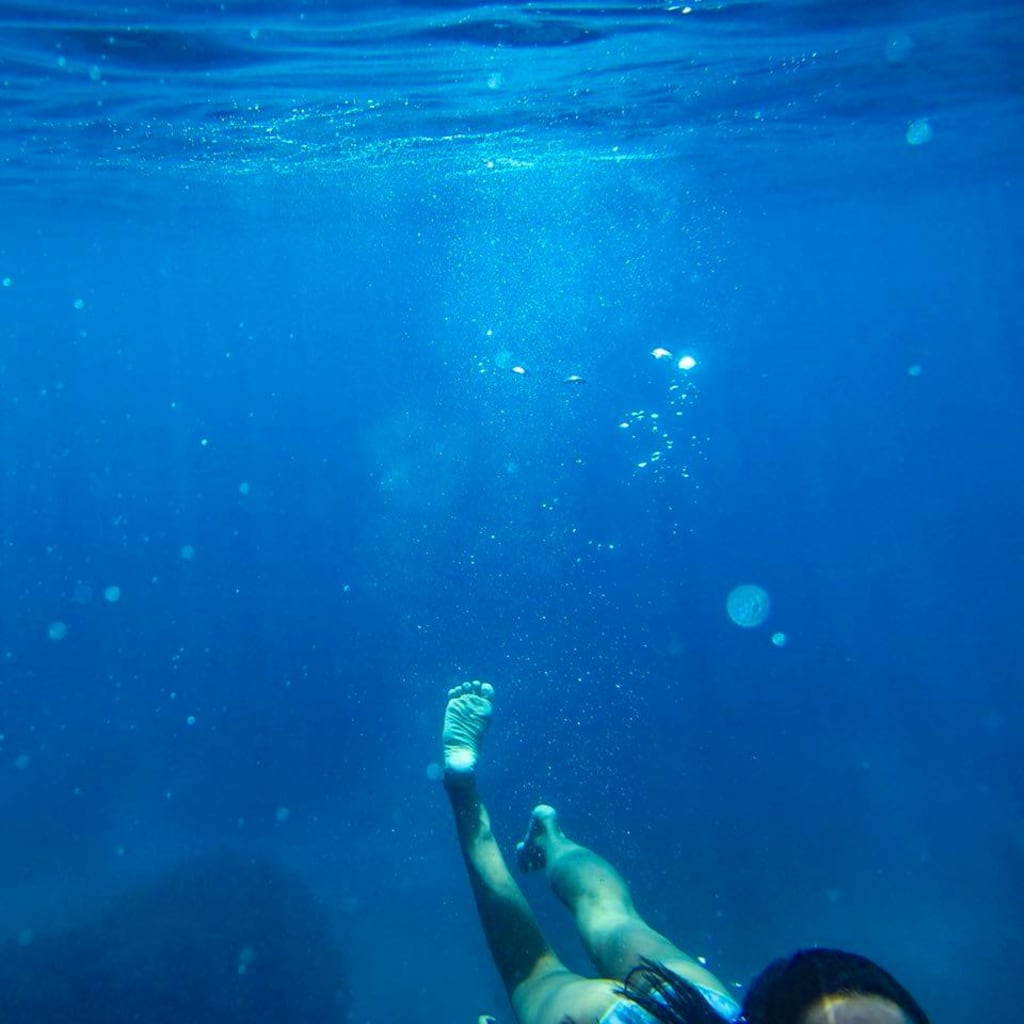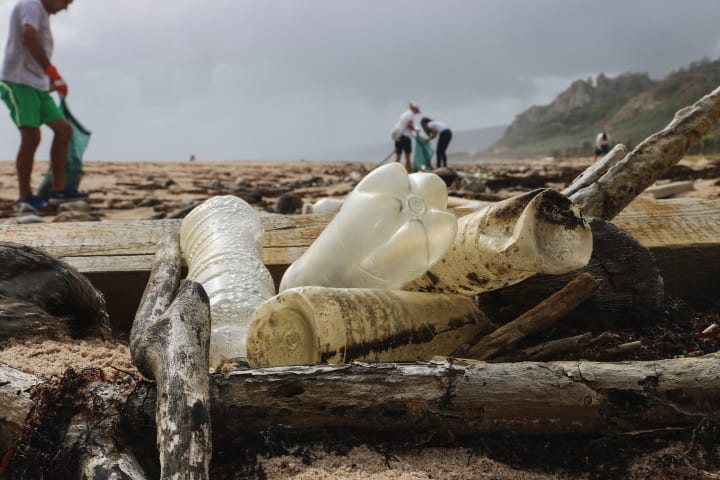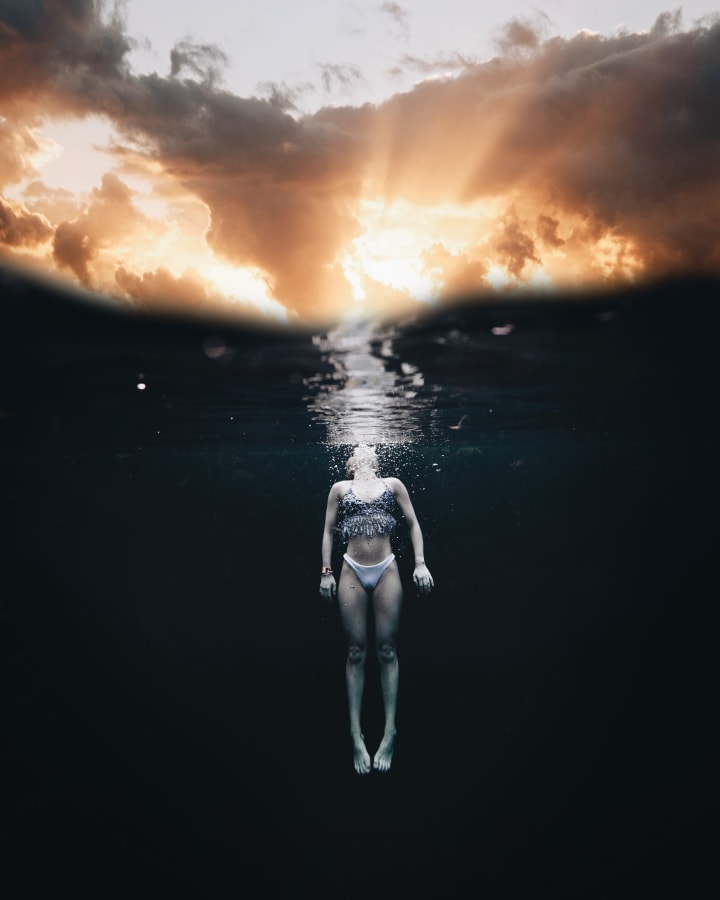#WaterIsMedicine, What's Your Water Story?
The power of water's story as lifestyle medicine.

My water story is simple: water is my medicine. Water has shifted my understanding of aliveness. I value being able to drink high-quality clean water. I celebrate the opportunity to experience the joy of being in the ocean with my loved ones. The wild waters of the Pacific have become the most epic playground, and most diverse university I've attended to date. Surfing taught me how to cope with my anxiety. Diving taught me how to breathe my way to peace. Hiking up the river with my dogs reconnects me to the instinctive relationship between nature and humanity. The relationship between human and nature is as natural as water.
“When we lose access to our waters, we lose a piece of ourselves,” said Dr. Wallace J. Nichols in his e-mail to his Blue Mind Ambassadors.
This statement triggered something deep within me. Is our ocean’s current state a direct reflection of our state, a result of our severed connection to water in each and every form? As a Blue Mind Ambassador, I’m constantly searching for the most effective application of conservation in day-to-day life. Over the years, I’ve grown sad and discouraged by the current state of the ocean. The gap between the ongoing hurt and our vision of recovery is confronting. Now with that, let us ask ourselves honestly: how can we bridge the gap before it’s too late?

Photo by Brian Yurasits on Unsplash
Our oceans are permeated by plastic, waste, and deadly toxins. Our apex predators and fish populations are on a sharp decline. Our coral reefs are being overtaken by urchins and skeleton gardens under the sea. The wellbeing of the ocean is fragile in our human hands, yet most conservationists don’t know why more people aren’t jumping to stand behind their efforts—or even worse, why the opposers continue to harm our vulnerable ocean. Is it possible that pure traditional conservation efforts will move fast enough to offset the projection of our global ocean health?
Dr. Wallace J. Nichols believes that the shift must come first to our home, and more importantly, in our personal water story. Nichols is an evolutionary ecologist and research associate at the California Academy of Sciences and is pioneering a new wave of interdisciplinary solutions. One of the leading researchers of health benefits on water, Nichols has two initiatives that focus on the ocean: Blue Mind Conference and Blue Marble Project. He also wrote the book Blue Mind, 2014, which dives into the foundation of his projects and offers readers a new perspective on the power of water in our lives.
So what is Blue Mind? Nichols defines Blue Mind as “a mildly meditative state characterized by the calm peacefulness of unity in a sense of general happiness and satisfaction with life at the moment.” Neuroscience has covered studies of the effects of meditation, chocolate, exercise, and movement on the brain, yet there are but a few studies on the effects of our planet’s dominant feature—water—on the brain. The pairing of neuro-conservation cleverly utilizes the insights of neuroscience to understand better the undervalued and unknown benefits of being in, under, on top, and near bodies of water.

Photo by Logan Lambert on Unsplash
Growing up in one of the most popular destination islands in the world, I’ve seen the premiums associated with an ocean view. Why do we pay 30 percent or higher to be situated as close to the water as possible? Many people who visit Hawai'i tell me that we are some of the happiest and most relaxed people they've met, and I believe it. In dark turbulent times, we are called to find solace near forms of water. When we celebrate we do so with our loved ones in the sun and water. Nichols believes that we are innately connected to the water by origin. His chosen metaphor of water's importance to Earth is represented as the blue marble. The marble serves to remind us that Earth seen from space is a blue planet.
The inclusion of studies of cognitive benefits of nature will pave way for a more wholesome approach to conservation in which the best interests of humans and nature are met equally and in harmony. Nichols is bringing his Blue Mind into the broad discussion of wildlife conservation and ecosystem services along with nine areas of society that he’s coined as #Wethearts sectors. To achieve sustainable traction in conservation, Nichols believes in beginning with shifting the anxiety around the environmental issues from despair into hope. How do we incite hope in people? We begin by changing our personal water story from one of disconnection to reconnection.
I invite you to write a personal water story one that nourishes and inspires you. Take time to notice how you feel when you’re near, under, in, or above the water. Cherish the feel-good emotions that water brings you. Experiment with daily or weekly water excursions and play time to reduce stress and anxiety. The deeper we fall in love with water, the stronger our reverence and responsibility to show up as stewards will ensue. With that, I wish you water.
About the Creator
Dion Garcia
Holistic Lifestyle Entrepreneur in hot pursuit of passion, pleasure, and purpose.







Comments
There are no comments for this story
Be the first to respond and start the conversation.